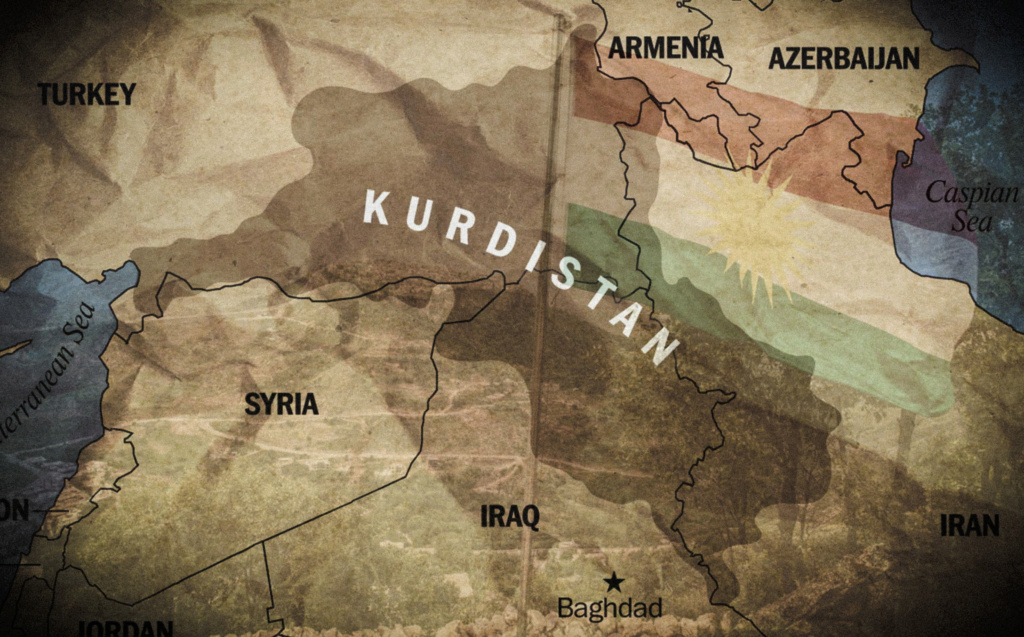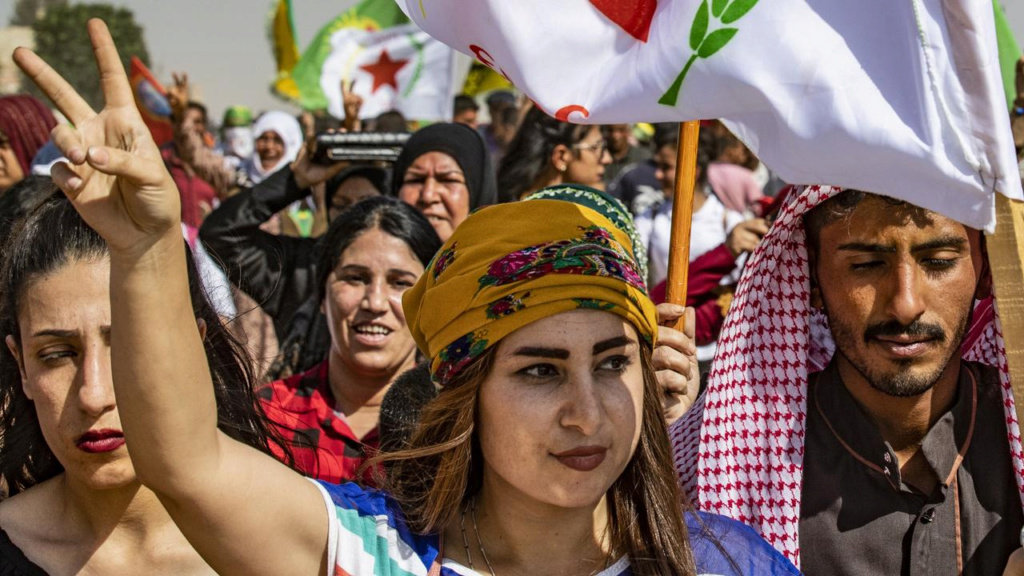The Kurds... After Sykes-Picot: A History of Oppression, Persecution, and Struggle in the Hope of Independence

The Kurds, as a minority in the region, albeit a large one, after promises to establish a state in the aftermath of World War I, soon found themselves dispersed in several countries, each with its own concerns. However, it gathers in their suppression and persecution, in a way that exaggerated their national feeling, and since then they began to fight for everyone whose position is for the independence of “Kurdistan”.
There is no dispute that some of the societal components of the countries of the Middle East do not recognize, implicitly or explicitly, the political borders drawn by the colonialists...
This lack of recognition is embodied, says researcher Abd al-Basit Sida , in several ideological projects that revolve around nationalism, religion, or sect... In the end, no country there has been able to build national projects that reassure all its components.
The Kurds, as a minority in the region, albeit a large one, after promises to establish a state in the aftermath of World War I, soon found themselves dispersed in several countries, each with its own concerns. However, it gathers in their suppression and persecution, in a way that exaggerated their national feeling, and since then they began to fight for everyone whose position is for the independence of “Kurdistan”.

At the end of the 1970s, a group of Kurdish youth met, led by Abdullah Ocalan, and announced the formation of the Kurdistan Workers’ Party, whose slogan was: “Formation of an independent, unified, socialist Kurdistan.”
The party was based on a mixture of leftism and nationalism, as a reaction to the Turkish left, from which Ocalan defected, after he demanded that the Kurds postpone their demands until socialism was achieved in Turkey.
The first step taken by the party was the declaration of revolution and armed struggle, which it ratified when it held its second conference in Syria in 1982 AD.
Today, after more than thirty years of armed conflict between the two parties, it is clear that neither of them was able to resolve it in their favour, despite the disparity in the balance of power in favor of Turkey.
There is no exact number of victims of this conflict, according to researcher Khaled Aklan; Each party provides numbers according to its estimates, but it ranges between 60 and 70 thousand people.

However, this situation, Abdul Basit Sida explains, changed somewhat in Turkey during the term of President Turgut Ozal (1989-1993), and the government of the Justice and Development Party continued with it, which then entered into direct negotiations with the party, hoping to find a solution to the Kurdish issue. .
At that time, there were many signs of goodwill. Thousands of Kurds were amnestied for political prisoners, including prominent party leaders, and in 1991 the total ban on the Kurdish language was replaced by a partial ban.
After that, a long series of negotiations began... It was reaching advanced stages, but, Khaled Aklan points out, it quickly deteriorated and stopped completely after the return of violence and military operations between the two sides.
By the way, observers of the region link the suspension of the peace process and negotiations between the two parties to the regional situation, especially the Syrian crisis.
The party accuses Turkey of supporting takfiri groups in Syria and Iraq, which stand against Kurdish rights and demands in these two countries. Turkey accuses the party of being a tool in the hands of the Syrian and Iranian regimes against Turkey's interests in the region.

Mentioning Iran , the Kurdish issue took almost the same path there, before the PKK entered the line, establishing its branch there under the name of the Kurdistan Life Party, after the intensification of its dispute with the Iranian regime.
In Iraq, too, the case took the same course. After the “Kuwait Liberation” war, the Kurds announced their uprising against the Iraqi regime, and they were faced with severe repression, which led to the migration of millions towards the Turkish, Iranian and Syrian borders.
Later, the Iraqi Kurdish parties, under pressure from Turkey and in coordination with its army, entered into a state of war with the PKK, which was present in the border areas.
As a result of these regional loyalties, the Kurdish region entered into an internal war, which lasted from 1994 to 1998, killing thousands, before ending with a peace agreement sponsored by the US Secretary of State at the time, Madeleine Albright.
However, after the overthrow of the regime in Iraq, in 2003, the Kurdish issue entered a new turn there, after the constitution approved Iraq as a federal state, so that the Kurds were present in the central government, and even played a prominent role in the midst of what was called the “war on terror.”

As for Syria, the situation was a little different… The roots of the Kurdish political movement there go back to 1927 AD when the Khoibon Association (Istiqlal) was established in Lebanon , and it took Syria and its Kurdish regions as a starting point for Turkey.
The difference with the cases of Turkey, Iran and Iraq is that the Kurds played an important role in the political movement in Syria and held high positions in the state there.
However, Khaled Aklan explains, not as Kurds or representing them, but as Arabized Syrians or Kurds, some of whom even belonged to Syrian nationalist currents and parties.
Only later, the idea of establishing a Syrian Kurdish movement crystallized, and the Kurdistan Democratic Party was established in Damascus under the slogan “Liberation and Unification of Kurdistan.”
Then the policy of oppression and persecution began towards them as well, in particular. Researcher Sameh Al-Farra [3] says that the ruling Baath Party was based on uniting the Arabs in one homeland.
Written by: Karim Al-Hani
Source : websites

